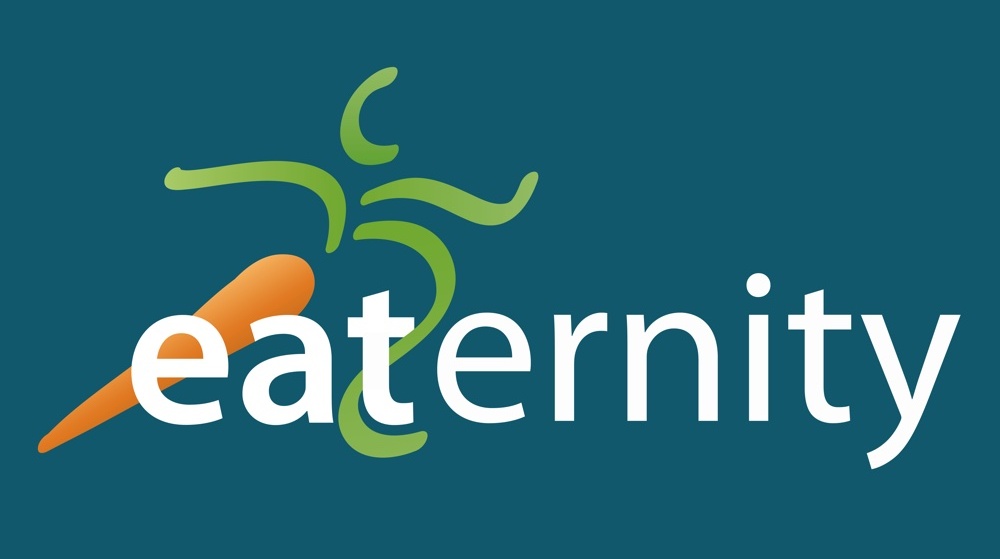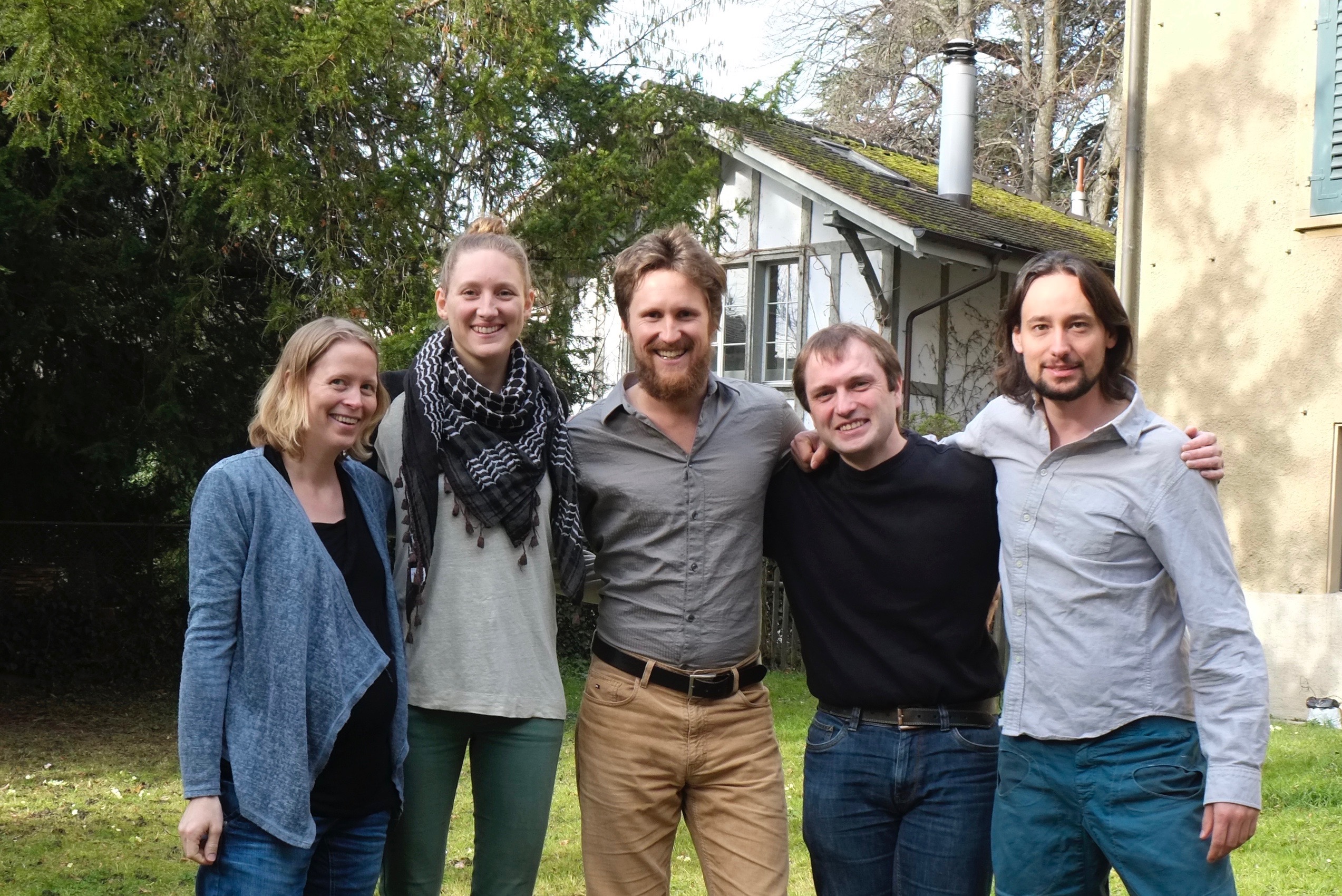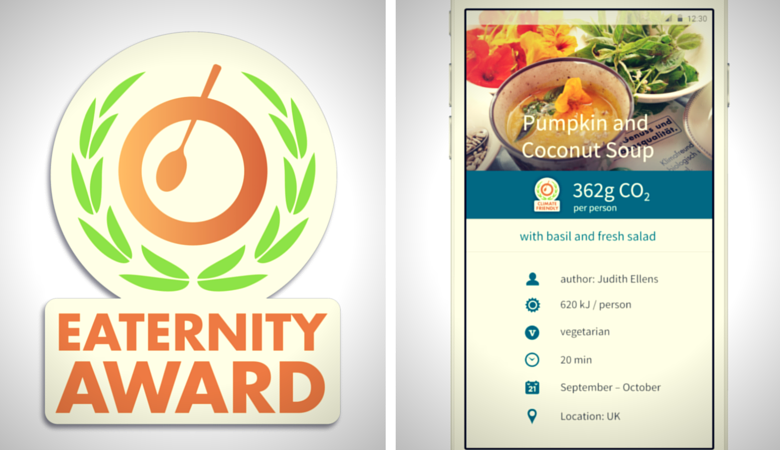Nearly one-third of the global CO2 emissions comes from growing, processing, transporting, storing and cooking food. By making better food choices, we are able to reduce our individual carbon footprint and make an impact to slow climate change.
Swiss startup Eaternity, a Zurich-based ETH spin-off, created innovative software application that allows individuals and organizations keep track of carbon footprint of their meals and helps them make more climate friendly food choices.

Eaternity in a nutshell
Eaternity is an innovative software application for private and professional use that automatically calculates CO2 emissions, allergens, nutrients, vitamins and minerals of meals.
With Eaternity, both individuals and players in restaurant industry are able to get access to smart insights into the entire supply chain of any product and use these insights to make climate friendly food choices when selecting their everyday food, thereby reducing their food-based environmental impact.
Eaternity provides solutions that help us raise awareness for the link between our food choices and CO2 emissions, gain a deep understanding of how each ingredient in the meal impacts our health and environment on the whole.

Photo: Eaternity team
How Eaternity got started
As a company, Eaternity was incorporated in 2014. However, the idea of creating Eaternity occurred at ETH Zurich in late 2008, when Eaternity co-founder Judith Ellens won the 1st prize at the ecoworks-workshop for her idea to measure and reduce the impact of food in restaurants.
Back then, discussions around reducing our environmental footprint rarely involved food-related topics. As a result, Eaternity team had to work really hard to attract attention of target groups towards the idea and solutions Eaternity was working on.
In 2009, Eaternity started building its comprehensive peer-reviewed CO2 database on food items, which has become a solid foundation for all CO2 calculations done by Eaternity App. That same year, Eaternity also launched its first project at one of the ETH canteens at Science City campus.
To curate its database and keep it up-to-date with latest research findings, Eaternity collaborates with scientists from Zurich University of Applied Science, University of Zurich, Swiss Federal Institute of Technology in Zurich.
The company also conducts a research called Organic FoodPrint with the aim to indentify all factors that impact climate, develop actionable recommendations for restaurants, individuals and organizations, and provide tools to “turn restaurants into climate heroes”.
Eaternity states that its long-term goal is to “build a knowledge consortium on food and its related environmental and health impacts.”
Since the official launch of the company in 2014, Eaternity has been closely collaborating with Swiss restaurants to calculate CO2 footprint of the items in their menus and develop climate-friendly meals.
In late 2015, Eaternity app went public, allowing everyone – individuals and restaurants – make an impact by cooking and sharing sustainable meals.
Currently, climate-friendly meals are already served in more than 74 Swiss restaurants.

How Eaternity works
Eaternity created apps for private use and for restaurants. The app for private use is completely free. It gives access to CO2 statistics on all products and hundreds of climate friendly recipes. The app also provides an option for unlimited recipe creation, allowing individual users come up with tasty, healthy and sustainable meals and revolutionizing the way people work in the kitchen.
Eaternity App Pro provides a variety of options developed specifically for restaurants and restaurant owners. The app automatically measures carbon footprint of the items in the menu and generates real-time daily statistics on every meal and the whole restaurant.
CO2 calculations done by the app are based on the whole lifecycle (import, production, processing, packaging, etc.) of any product used in the restaurant.
The app also makes a rapid analysis of allergens and nutrients. It generates reports that give an overview of the progress made by a restaurant.
Restaurants are also able to label their meals that create 50% less CO2 emissions that the average meal with “Eaternity Award”- the first footprint award for meals worldwide.

With Eaternity, restaurants are able to reduce CO2 emissions by half per menu compared to the average restaurant menu.
What’s more, users are able to utilize information based on individual ingredients to design meals and share recipes with others.
Visit Eaternity website to learn more about company.
by Natalie Myhalnytska
You may also like
Meet Greenamity, a Belgian Startup That Implements Reforestation Projects in Developing Countries
Meet GreenHotelWorld, a Booking Platform for Eco-Conscious Travelers
How Businesses Can Benefit From Pursuing Sustainability (Infographic)
